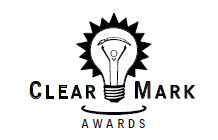About the writing guide
We strongly encourage the use of clear, concise and inclusive language. It's more accurate and makes it easier for all residents, regardless of education or literacy, to access essential county services.
ClearMark Award
Hennepin County has won two ClearMark Awards from the Center for Plain Language.

Questions or feedback about the writing guide?
Contact Brian Lieb at brian.lieb@hennepin.us.
Updates to the writing guide
New international plain language standards
The International Organization for Standardization (ISO) formally approved its first international plain language standard. The new standard will help improve written communication for everyone. This is particularly important in legal, health, public policy, government and corporate communications, where information influences critical decisions and people’s rights. Read the official press release.
Recent updates, additions and comments
- empower — In most situations, this word is fine if somewhat overused. Some organizations are now recommending avoiding this term because an organization can't give or officially grant power to someone. Instead, they recommend using language that reflects people claiming their own power. However, empower also means "to enable or equip with an ability." This definition is generally fine, as is a sentence where the empowerment comes from a situation rather than an organization. For example, "Equitable employment opportunities can empower people to achieve long-term prosperity."
- American Indian / Native American / Native — After conversations with leaders of local Native nations, Hennepin County now recommends checking with your intended audience on which term is preferred. Alternatively, you can use the specific nation (such as Lakota Sioux or Navajo).
- Contractions — Unless you're writing legal documents, we encourage you to use contractions. They are a simple way to help you connect with readers. For more information, visit Writing tips.
- The Shakopee Mdewakanton Sioux Community prefers the full name of the nation, Native or Native American. Do not use American Indian.
- Hyphens and dashes — We've added guidance on hyphens and dashes in Punctuation and formatting.
- We've added a link to the Native Governance Center's style guide in Writing tips and Writing and grammar resources.
- cellphone / cell phone — Both the one-word and two-word options are now considered correct.
- Latine — This gender-neutral term is still unfamiliar to many people, but can be used in place of Latino or Latina if you are confident your audience is familiar with it. Do not use with materials that will be translated into Spanish, as the term is not as common in Spanish-speaking countries.